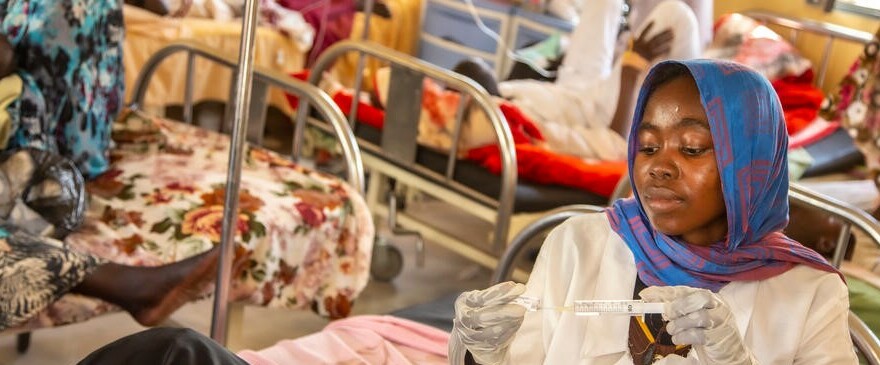Médecins Sans Frontières (MSF) said it has treated over 100 war-wounded patients – including 11 children, many with gunshot wounds – at South Hospital, El Fasher, over the past two weeks as fighting escalates around El Fasher town, North Darfur State.
The Sudanese army and the paramilitary Rapid Support Forces (RSF) have been engaged in a war since last April that has resulted in 15,000 deaths and more than 8 million displaced and refugees, according to the UN.
Since the start of the civil war, thousands of homes, schools, hospitals, and other vital civilian structures have been destroyed, plunging the country into a severe humanitarian crisis, and creating the world’s largest displacement crisis.
In a Wednesday statement extended to Radio Tamazuj, the international organization said its team is simultaneously scaling up response to the major malnutrition crisis in Zamzam camp, where the situation is “becoming even more critical. “
MSF is calling on the warring parties to ensure the protection of civilians, healthcare structures and staff, so that vital assistance for the tens of thousands of people whose lives are at risk can be effectively provided before it is too late.
Following the devastating results of a rapid nutrition and mortality assessment conducted by MSF in early January, a mass screening of more than 63,000 children under five, as well as pregnant and breastfeeding women, was conducted in March and April and confirms that there is a catastrophic and life-threatening malnutrition crisis in Zamzam camp, North Darfur.
Of the 46,000+ children who were screened, a staggering 30 per cent were found to be suffering from acute malnutrition – with eight percent having severe acute malnutrition (SAM). Similar figures were found among the 16,000+ pregnant and breastfeeding women who were screened: 33 percent were acutely malnourished, with 10 percent having SAM. For both population groups, these figures are double the emergency threshold of 15 per cent, indicating that there is a massive, life-threatening emergency in Zamzam camp.
“In Zamzam camp, there is an acute disaster on a catastrophic scale,” says Claire Nicolet, head of MSF’s emergency response in Sudan. “The situation is critical, the level of suffering is immense, but despite this being known about for nearly three months, nowhere near enough has been done to help those who are struggling to survive. With the fighting escalating, we are extremely worried that it will make it even more difficult for the much-needed international support we have been calling for to arrive.
She added,” And, with the lean season approaching, we are also worried that there is going to be a rapid deterioration in this already drastic malnutrition crisis over the coming weeks. The lives of hundreds of thousands of people were already in jeopardy – and now, with the current fighting, even more are at-risk. There is an urgent need for the humanitarian response to be rapidly scaled-up so that this malnutrition crisis can be pulled back from the brink, and for this to happen, it is vital that the warring parties take action to enable safe humanitarian access and the protection of civilians.”
MSF further said it has already scaled-up its response by opening a second health clinic, enrolling over 11,000 children in its nutrition programme, and opening a 35-bed field hospital to treat the most critical cases.
Currently, the statement said, all beds are fully occupied and among the patients are 19 children with severe acute malnutrition and three with suspected measles.
MSF revealed that it is planning to start a vaccination campaign against measles and to expand its activities to provide support for pregnant women, but it this is not enough to meet the needs.
“There is no doubt that there are enormous challenges when it comes to providing humanitarian assistance in Sudan, but it is possible to do it,” says Nicolet. “Restrictions on humanitarian access – including deliberate obstructions on the delivery of aid by the warring parties – have significantly hampered the ability of aid agencies to scale-up the response. Insecurity has as well. But the situation is too critical for these issues to continue being used as excuses. The UN and the wider humanitarian community must do more to negotiate access for UN agencies and international NGOs to come and assist with the response in Zamzam.”
The conditions people in Zamzam are living in are deplorable. There have been no official food distributions in the camp since May 2023. Although a handful of UN trucks reached El Fasher two weeks ago, nothing reached Zamzam until Monday 29 April. On this date, community leaders were handed food that they were then expected to distribute among the population. However, even before the start of the war, people in the camp received very little support.




